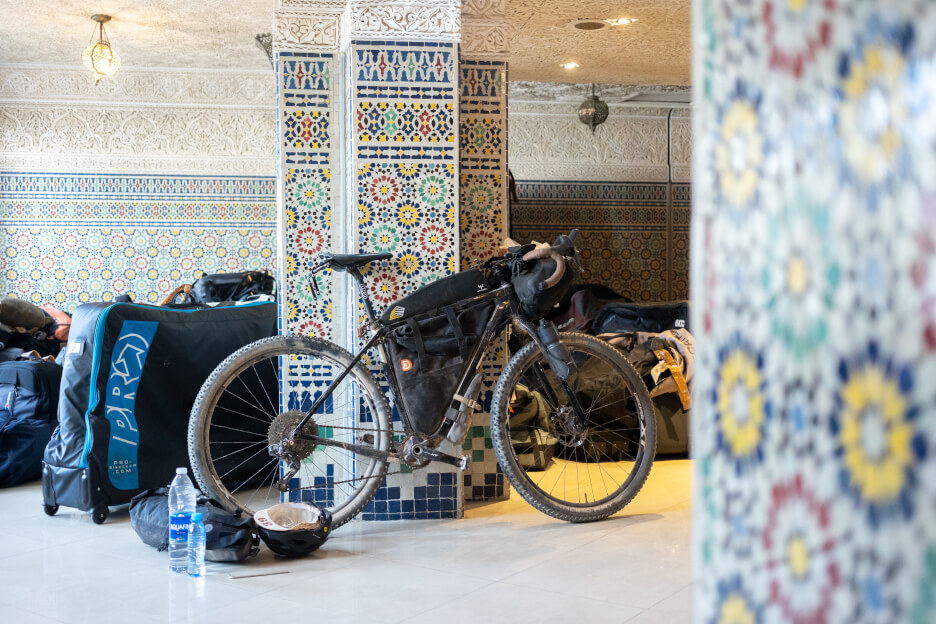Tour Divide, Badlands, GranGuanche, Atlas Mountain Race, Further, Tuscany Trail, Silk Road Mountain Race, GBDURO. The chances are that you’ve heard about some of these ultra-cycling events, ranging from road to off-road, from 300 km to 3,000 km or more, following fixed routes or checkpoints that require route planning. Whilst no two ultra-cycling races are ever the same, they share a common characteristic: these races are really long, really hard, and almost always fully self-supported. They’re not to be taken lightly, nor are they just about training hard and then riding fast. Much more so, they are a mental challenge. Sounds fun? Maybe not, but then again, bike riding is not always about fun. A lot of us ride bicycles for the challenge, the challenge to push ourselves further than the last time, seeking out our personal limits. What better way to do so than to ride something as ridiculous as an ultra race?
After many hours of dot watching and engrossed in epic clips of riders pushing themselves in amazing landscapes, I decided to give it a try—two tries, even. Should you do the same? I hope to help you answer that question by sharing some of my insights and the lessons learned. Let’s call these ‘lessons from an experienced beginner’.
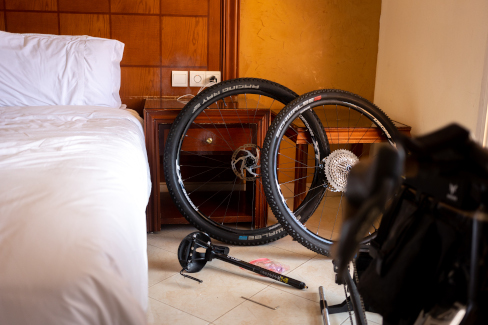
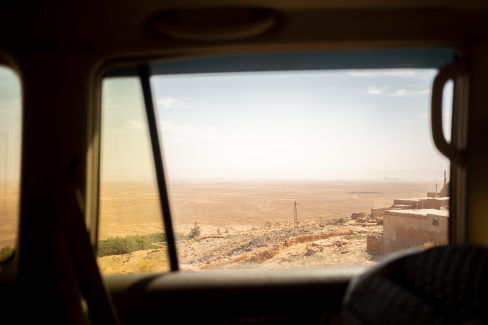
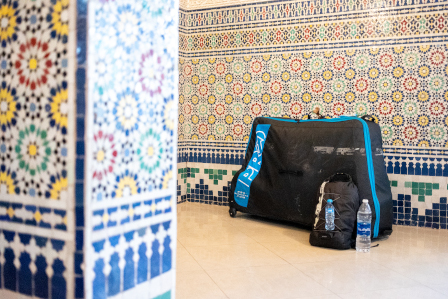
First off, riding an ultra isn’t as easy as just grabbing your gravel bike and bikepacking stuff and setting off into the sun. It takes a lot of time to prepare—not only physically and mentally, but also with regards to your gear. You may even have to build your own route, taking into account things like resupply points. This prep stage should not be underestimated but will give you a great sense of anticipation for the race itself, making it count as part of the fun. Next, there’s travel. Travel is fun; you get to see the world by bike, but before that, you have to travel to the start. Maybe you’ll have to do this by plane, weighing up your impact on the planet, or perhaps you get there in a more environmentally friendly way. Either way, it’s going to cost you time and money. #Outsideisfree is the biggest lie we cyclists tell ourselves, but the experience can be well worth the cost.
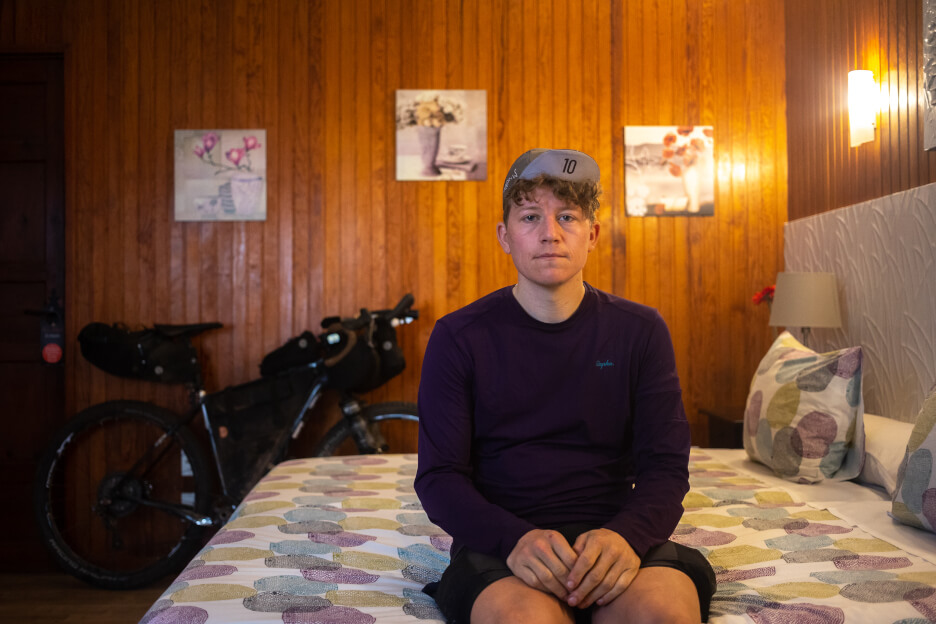
So now you’ve done your preparations, read a thousand blogs, and seen all the videos. You’re ready! Wrong. From my own experience and through talking to lots of other ultra riders, I can assure you that you’ll never truly know what you’re getting yourself into. Your packing list, however good, will never be perfect. Not for your first ultra, and probably still not when riding your twentieth. Ultras vary as much as the weather. You’ll always bring that one thing you didn’t need, and miss out on that other thing you forgot. Not getting it perfectly right, however, is part of the experience. Adventure isn’t perfect. If you learn to open yourself up to the imperfections of the experience, you’ll enjoy it a lot more, I promise you.
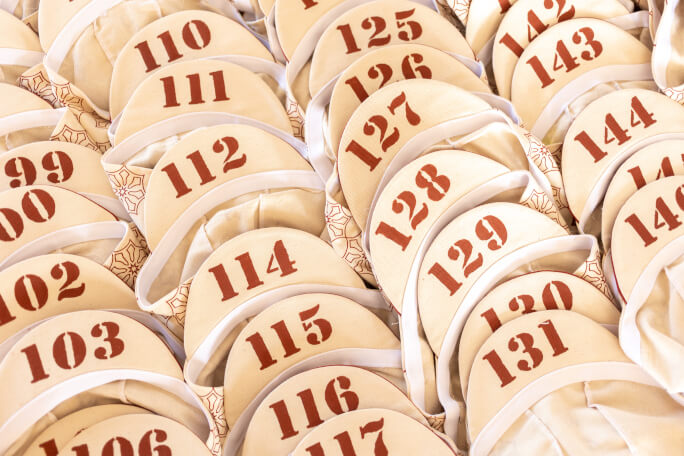
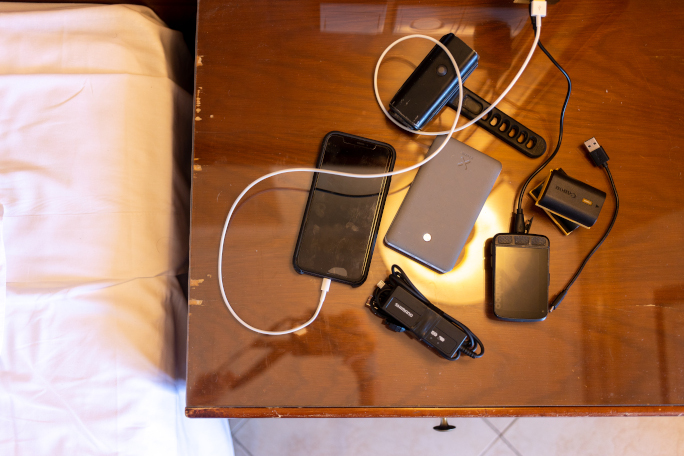
Even the best preparations cannot make up for lack of experience. Before my first ultra – GranGuanche Audax Trail 2021, an 800 km off-road race across the Canary Islands – I knew it would be key to not push myself to the max and save my energy for later in the week. But what does that really mean? I had no experience whatsoever with riding full days for a week on little to no sleep, and because of this, I didn’t have a clue how much sleep I’d actually need or how much I could push myself in terms of endurance without draining my energy too much. Lacking experience, I set off way too fast and slept far too little. I learned the hard way during this first ultra that I am no Sofiane Sehili, a fellow Gravel Alliance rider and something of an expert when it comes to ultras. I need my sleep and I need to ride slowly in order to even finish at all.
Experience matters and the only way to get it is to go get it.
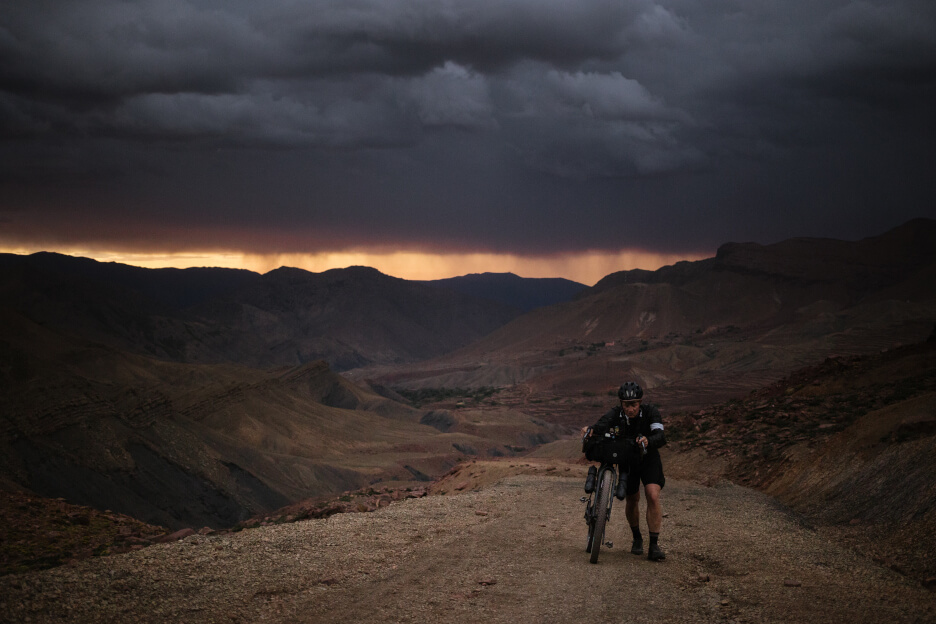
Let’s tackle another issue: Fun. Riding an ultra is the pinnacle of type 2 fun, maybe even verging on type 3. They’re like riding up a tough mountain; it’s rarely fun in the moment, but afterwards, you’ll look back and realize that it was a great experience, and you want more of it. They’re addictive in a way that is hard to describe. I asked experienced ultra rider and Transcontinental winner Josh Ibbett what it was that made him come back time and time again. His words read so well that I’ll quote him here:
Once you learn the process of finishing – the fact that it’s more mental than physical – you are able to really immerse yourself in the journey. Seeing new places, cultures and countries never gets old, and that’s even without the physical part of the journey. I guess it’s escapism at its finest. What other occasions in life mean you can stay up all night just for the heck of it, eat what you want, or even go for days without a shower. Real life just isn’t the same once you get back home and so the inevitable happens, and life on the road calls again.
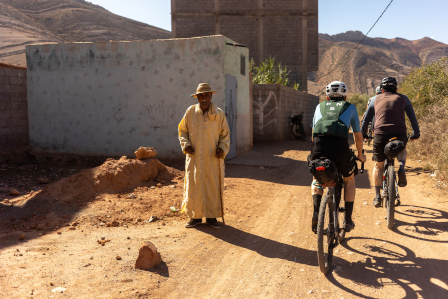
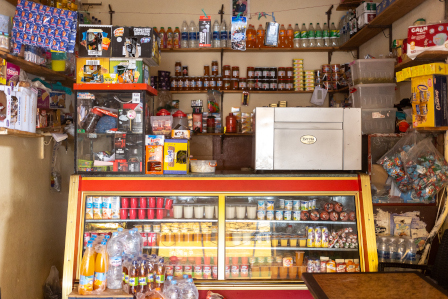
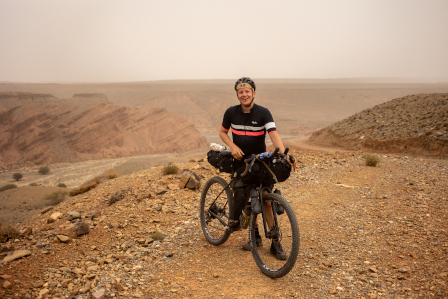
I remember him not being slightly less poetic when we were drinking beers together at the finish of GranGuanche. I had just told him that I was never going to ride an ultra ever again, to which he replied: “It will either take you five nights’ sleep or five beers, whichever comes first, that will make you change your mind.” He was right. Months after DNFing at GranGuanche, I found myself at the start of my second ultra race, the Atlas Mountain Race, one of the most challenging off-road ultra races on the planet.
The run-up to this new challenge had been much more relaxed than the run-up to my first ultra. My bags were much easier to pack, my bike was already set up correctly, and I somewhat naively thought that I had an idea of what I was getting myself into. I actually felt confident going into this 1,200 km single-stage monster effort with eye-watering amounts of climbing and remote hike-a-bike sections. Learning from my mistakes the last time and actually doing some party-pacing and real sleeping felt like a big win. I wasn’t in it to win it, but to finish it, which is still easier said than done at a challenge like the Atlas Mountain Race.
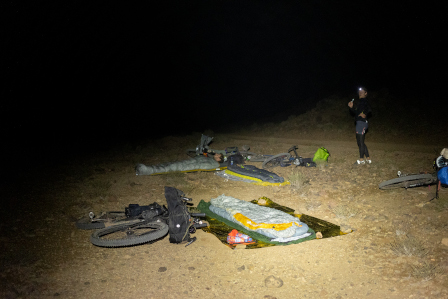
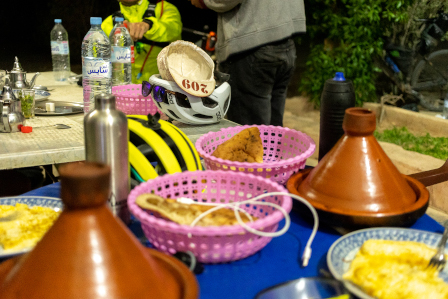
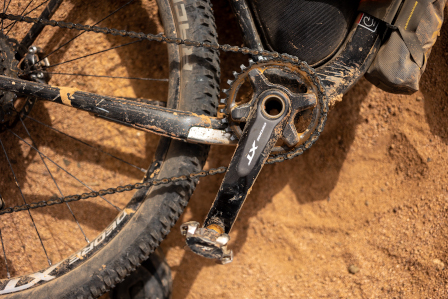
This confidence, however, led to another lesson learned: It transpires that there is also a phenomenon of ‘going too slow’. With this, I don’t mean slow in the sense of kilometres per hour – you can only push yourself so much on terrain as tough as that in the Atlas mountains – I mean, the actual time it takes to make progress in the race. Riding at night is an important part of ultra-riding. Those resting 6-8 hours will have to make up for it in speed. For slower riders like me, you will have to find a good balance between speed and sleep. Sleep too little and you’ll lack energy. Sleep too much and you’ll be too far behind in the race to make up for it later on. Again, experience matters.

There are also things you cannot train for that might get to you. In my case, after 3 days of riding, it was the combination of a lack of energy and an inability to find decent food. Not finding something substantial or even an omelette after riding an 11-hour remote desert section was part of what led me to scratch from the race. As stated before, the mental game is so much more important than simply bringing strong legs. My body was tired, but my morale was suffering even more. The heat, as well as the scarcity of food, were no friends of mine. I was acutely aware that I was not going to make it to the finish before the cut-off time, and with morale as low as mine at that point it didn’t make sense to push on.
I scratched for a second time. It felt like a failure. However, there’s a lesson here too. Know that this wasn’t failure per sé. It takes courage to join and ride an ultra, to jump into the unknown, and push yourself to the max physically and mentally. But knowing when to quit also takes courage. You might not be aware of it in the moment you scratch, but know that despite all the self-supported kilometres, you are never alone. People at home will be following your progress. They’ll be dot-watching you, tracking your every move on social media. As they sit in their comfy homes, sleep in their comfy beds, you have been out there struggling in some remote landscape. Your dot-watchers will be your biggest supporters and will happily remind you how strong you really are. They’ll support you when you need it most, and that’s a great feeling.

Finally, think how empowering it is to discover that your boundaries are way beyond where you thought they would be. A fresher pair of legs and a clearer head might be what get you to the finish, but even if you scratch and don’t make it, there will be hardships you’ve overcome, and lessons learned. You never return home empty-handed. You’ll bring something home that only riding – or in my case, trying to ride – an ultra race can give you.
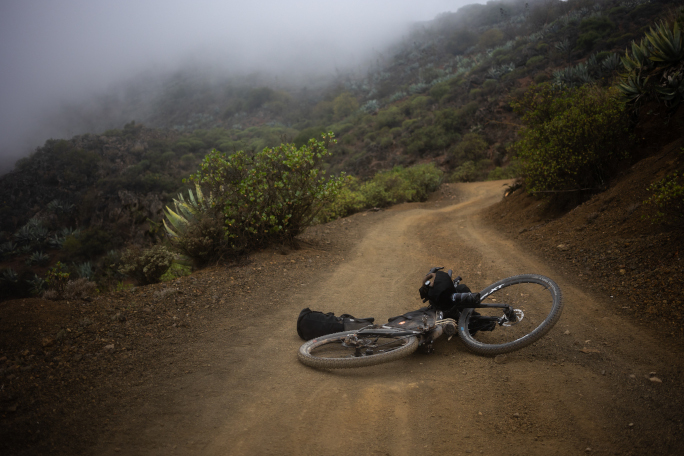
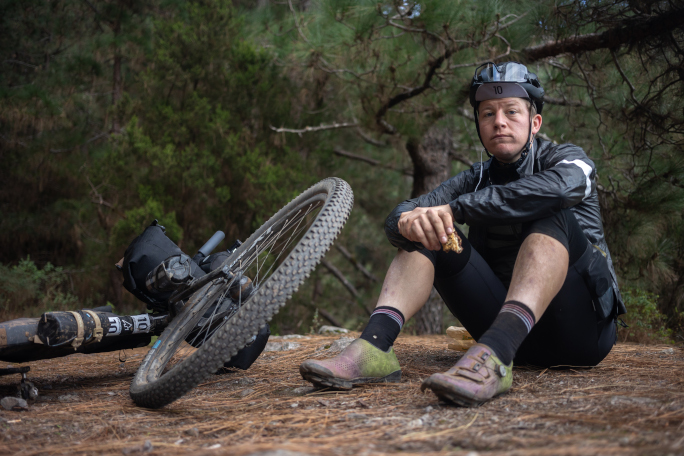
All of the above is probably why sooner or later I will show my face again at the start of some ultra somewhere. So, should you also do it? Should you race an ultra? Obviously, it’s a really personal choice. Not all ultras are as hard as the Atlas Mountain Race, so when in doubt, I suggest doing some more dot-watching and long bikepacking rides at your own pace. Try riding through the night on your own and see how it feels. But the best way to scratch the itch is to give it an actual try. Whether you finish or not, you’ll go home with more insight. And through your gained experience, you may even want to try it again.
Why don’t you sleep on it, and I’ll do the same. Perhaps we’ll see each other at the start of the next one. In fact, I'll put money on it. See you there.
Erwin
